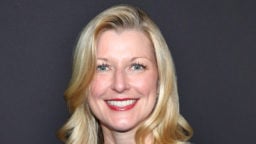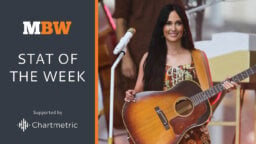The Radio Music License Committee (RMLC) has been hitting the headlines recently.
The US commercial body, which represents over 10,000 commercial terrestrial radio stations, is in a legal battle with Irving Azoff‘s performance rights organization Global Music Rights (GMR) – with each accusing the other of anti-competitive behavior.
What that means in reality is, until a settlement or licensing agreement can be found, the songwriters represented by GMR could end up not being played on (or paid by) the influential network of stations.
Meanwhile, one of the US’s most established PROs, the American Society of Composers, Authors and Publishers (ASCAP), has struck a deal with RMLC – which will last for five years.
The deal includes a royalty hike on the previous agreement between the two parties covering terrestrial, over-the-air broadcasts as well as certain digital transmissions.
For the first time, the deal expressly affirms the percentage share of radio performances represented by ASCAP – at a level that reflects that ASCAP says licenses more performances on broadcast radio than any other performing rights organization.
“We are confident that our new agreement will provide enhanced financial benefits to ASCAP songwriters, composers and music publishers at a time of tremendous disruption in the music industry.”
Elizabeth Matthews, ASCAP
The deal, covering the five-year period 2017 to 2021, allows the 10,000+ stations to publicly perform more than 10.5 million musical works in the ASCAP repertory.
ASCAP CEO Elizabeth Matthews commented: “We are confident that our new agreement will provide enhanced financial benefits to ASCAP songwriters, composers and music publishers at a time of tremendous disruption in the music industry.
“Reaching a voluntary agreement with the terrestrial radio industry enables ASCAP to stabilize and grow revenues for our members while continuing to aggressively advocate for regulatory reform to modernize the music licensing system.”
RMLC Chairman Ed Christian commented: “This agreement demonstrates how the creative and music user communities can work together in good faith to produce an outcome that is positive for both sides. The increase in ASCAP fees is consistent with ASCAP’s established spin share on radio. We are pleased to close this deal ensuring that there will be no interruption in ASCAP music being performed on American radio at a time when the music licensing landscape has become increasingly complex.”
ASCAP represents 600,000 songwriters, composers and music publisher members whose songs and compositions comprise the largest catalog of music played on commercial AM/FM radio of any performing rights organization in the United States.Music Business Worldwide





